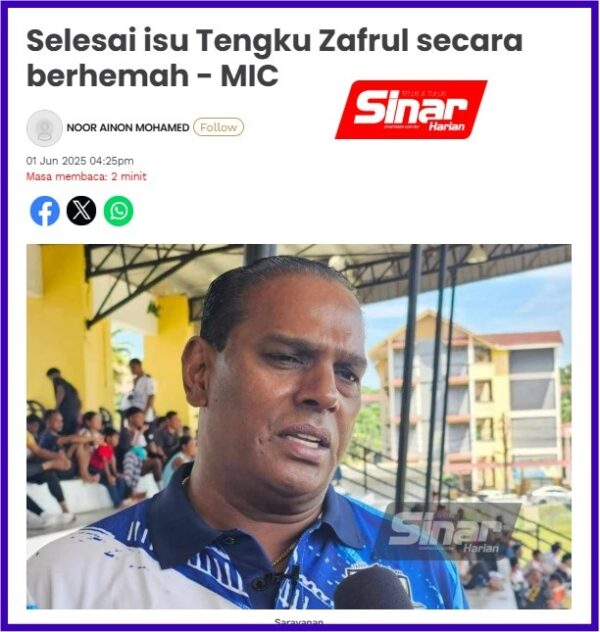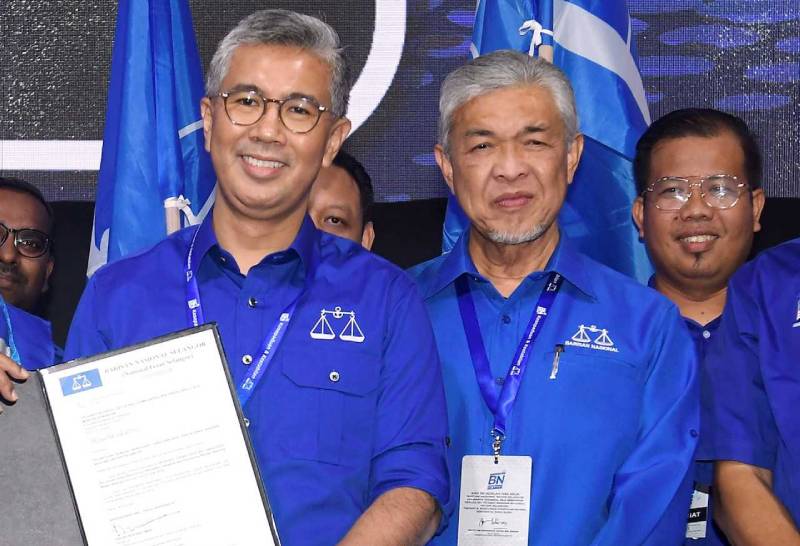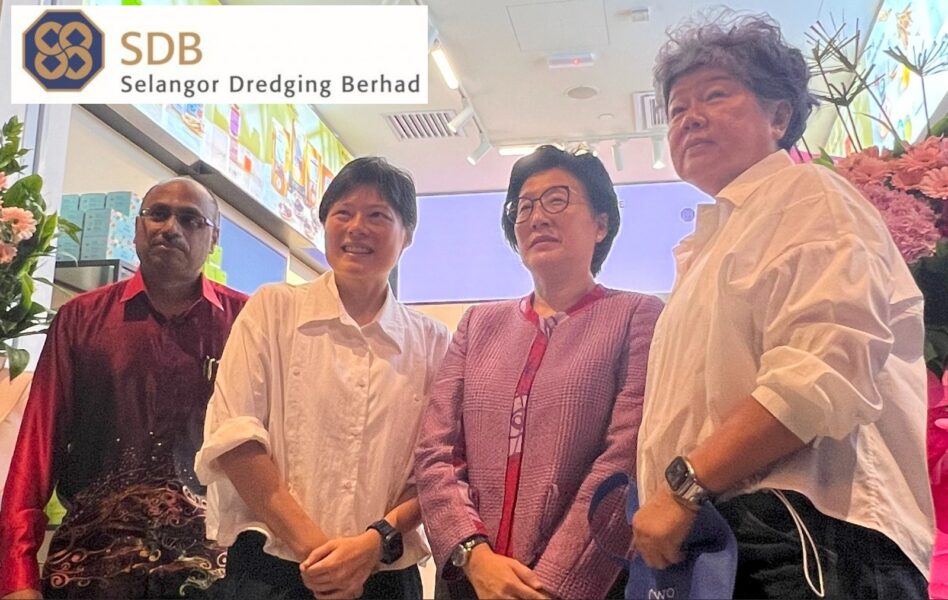DESPITE being one of the oldest political parties in the country, MIC remains shackled under the dominance of UMNO within the Barisan Nasional (BN) coalition.
Recently, UMNO president Datuk Seri Ahmad Zahid Hamidi pushed for the reinstatement of all seven ministerial posts to UMNO, following the resignation of Tengku Datuk Seri Zafrul Abdul Aziz from the party to join PKR.
Currently, UMNO holds six ministerial positions. Zahid’s demand that the vacant seat be filled by another UMNO leader has drawn criticism, particularly from MIC strategic director R. Thinalan.
Thinalan slammed Zahid’s approach by contending that UMNO was acting as if it were the sole representative of BN by sidelining both the MCA and MIC in the process.
He called for either MIC or MCA to be given the vacant ministerial seat, especially if Tengku Zafrul has to step down.
What’s more telling, however, is the silence of the MIC’s top leadership. Instead of voicing discontent themselves, the party’s president and deputy president chose to let Thinalan carry the burden of articulating MIC’s dissatisfaction.
Editor’s Note: Sinar Harian cited MIC deputy president Datuk Seri M. Saravanan as calling for the BN leadership needs to take a prudent approach in resolving matters arising from the resignation of Tengku Zafrul from UMNO.
He stressed that although Tengku Zafrul is an UMNO member, the issue does not belong to the party alone but rather involves the interests of BN as a whole.

Total sideline
Both MIC and MCA have long felt marginalised – not just by UMNO’s overbearing dominance but also by the Madani government’s selective inclusivity.
Prime Minister Datuk Seri Anwar Ibrahim’s seemingly close alignment with Zahid has led to growing frustration. In the name of unity, the government should have at least appointed a minister from either MIC or MCA as a symbolic gesture of representation.
The denial of even a token Cabinet post to the Indian community speaks volumes. Publicly, things may appear stable but privately, both MIC and MCA are growing increasingly disillusioned.
Rumours suggest that both parties may consider switching allegiances under the right circumstances – a move seen as preferable to playing subservient roles in a coalition that no longer values them.
The core issue lies with MIC’s leadership. It lacks the courage and commitment to stand up for the community it claims to represent.
If MIC couldn’t deliver during its political heyday, it is even less likely to do so now amid growing irrelevance and internal decay.
The truth is stark: UMNO no longer needs MCA or MIC to project inclusiveness especially with DAP playing its role to retain a sliver of non-Malay support.
But this political calculation may backfire. As DAP continues its passive stance within the government, it risks alienating its base – just as MIC and MCA already have.
Once a formidable political brand, BN unity now looks like a relic held together more by nostalgia than mutual respect. – June 3, 2025
Former DAP stalwart and Penang chief minister II Prof Ramasamy Palanisamy is chairman of the United Rights of Malaysian Party (Urimai) interim council.
The views expressed are solely of the author and do not necessarily reflect those of Focus Malaysia.









